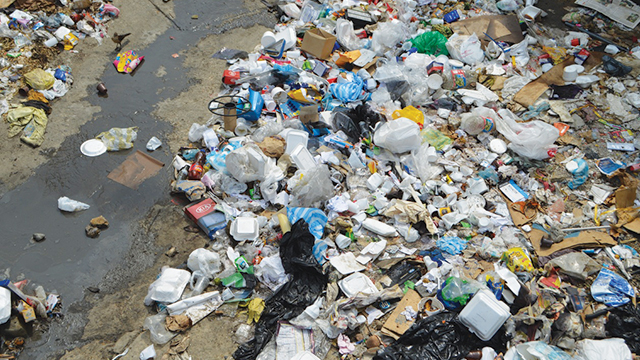Jakarta (Greeners) – Indonesia Plastic Recycling Association, or ADUPI, files a lawsuit against Bali provincial administration on its plastic waste policy.
The lawsuit is filed because the Association is concerned about plastics supply for recycling will be reduced and provincial government is considered inconsistent in implementing the 2008 Law on Waste Management.
Made Tedja, Bali Environmental Agency Head, confirmed the lawsuit to Greeners.
“The lawsuit is true and currently being handled by our team of law bureau. To avoid misunderstanding, we cannot give any comments before there is legal clarity from our legal team,” said Tedja via short message on Thursday (25/04/2019).
Until this article is published, the Association has refused to confirm about the lawsuit.
Novrizal Tahar, director of waste management at Ministry of Environment and Forestry, said that the Association should be too concerned about losing materials for plastic recycling because the government has considered the balance in its policy.
Based on the 2008 Law, waste management, in principle, is classified into waste reduction and waste management. Waste reduction comprises of limiting waste, reuse and recycle.
READ ALSO: Ministry of Environment and Forestry to Evaluate Eco-Labels for Plastic Bags
Several regions have applied single-use plastic waste ban, including Bali, Banjarmasin and Balikpapan. These areas are no longer provide single-use plastic bags in modern retailers. Banjarmasin extends its policy to traditional markets.
Tahar said the law on waste management, philosophically, determines the highest hierarchy in waste management is to prevent or limit waste volume.
“Furthermore, the policy is stated on Clause 11, Government Regulation 81/2012 on Household Waste and Waste Similar to Household Waste Management which declares “waste limitation includes limiting waste volume. So, it’s legit that regional government set up the policy for limiting plastic waste. If friends in ADUPI files the lawsuit based on the 2008 Law, there’s a derivative regulation in the government regulation,” he said.
Furthermore, he said that the association should not be too concerned of losing plastic recycling materials because the government implements circular economy. In addition, the government will not issue single policy.
“Now, if only rely on recycling, it’s still low meanwhile our waste issue is massive. The government does not issue single policy, we also encourage circular economy, and encourage for technology. I think with all the things we have already done, there’s a balance point. For this matter, the ministry is ready to assist,” he said.
READ ALSO: Indonesia Potentially Becomes World’s Largest Plastic Waste Importer
Tiza Mafira, executive director of Indonesia Plastic Bag Diet and founder of plastic bag policy, said that the Association lawsuit is baseless.
Mafira said that regional government only bans several single-use plastics and already researched to determine which types of plastic difficult for recycling in their own areas.
“What is actually the reason of ADUPI? About the worry on running out recycling materials, as far as I know ADUPI recycles plastic bottles. There is never any discussion to ban plastic bottles because plastic bottles are the best selling plastic in recycle and the rate is quite high, up to 60 percent. The one is being banned is single-use plastic because it is hard for recycling and low value, so no waste banks would want to receive. So, why ADUPI feels being in disadvantage, I don’t understand,” she said.
Furthermore, she said that plastic types being limited or banned by regional government are single-use, plastic straws, and styrofoam. She said that GIDKP is not backing down for assisting areas which are currently and will implement policy of plastic waste limitation.
“Regional government’s intention is to solve the issue so that they’re not afraid. That’s why we are also not afraid. The solution is clear that single-use plastic needs to be limited because it’s failed to be recycled. We will see how weak or strong the lawsuit in the Constitutional Court,” she said.
Reports by Dewi Purningsih



















































